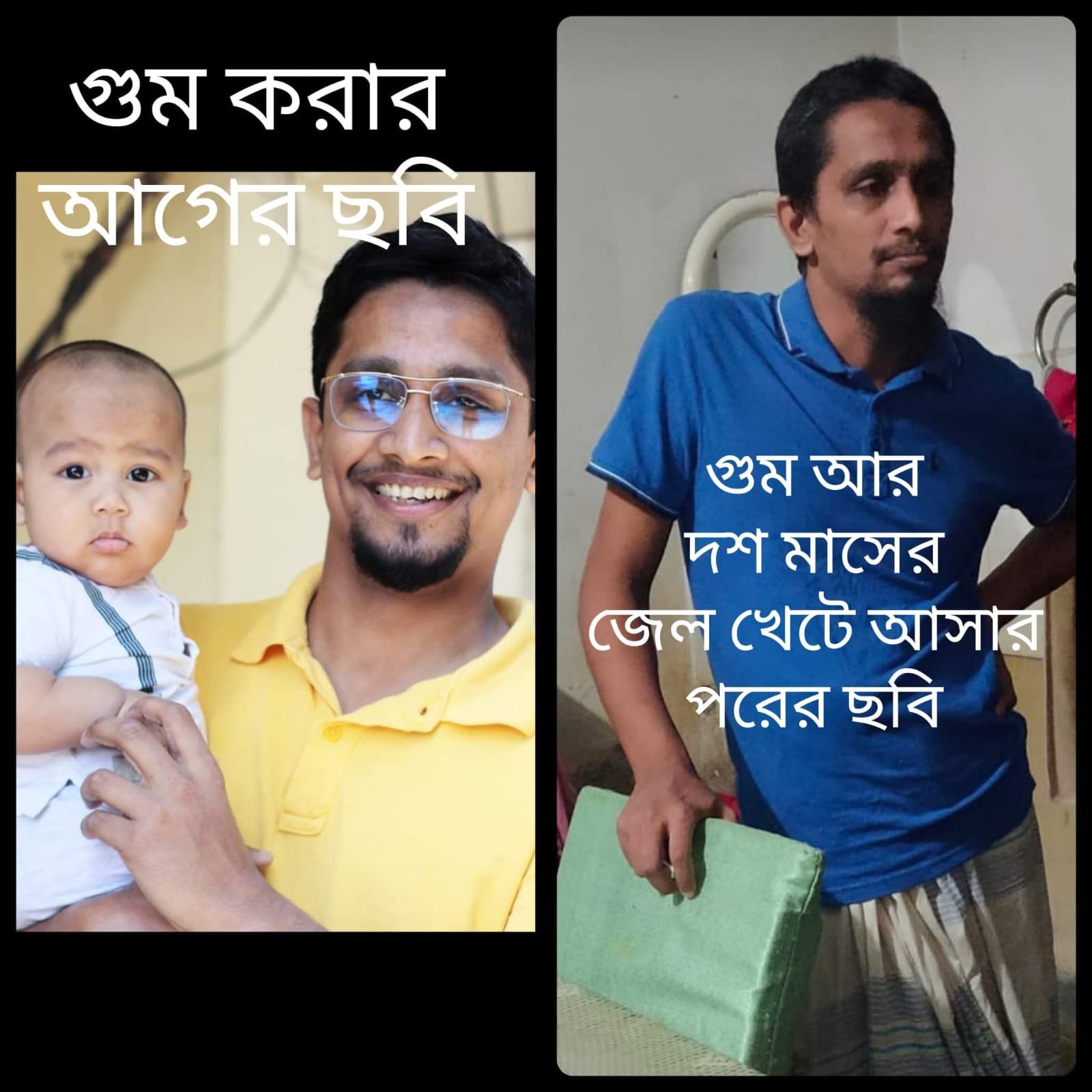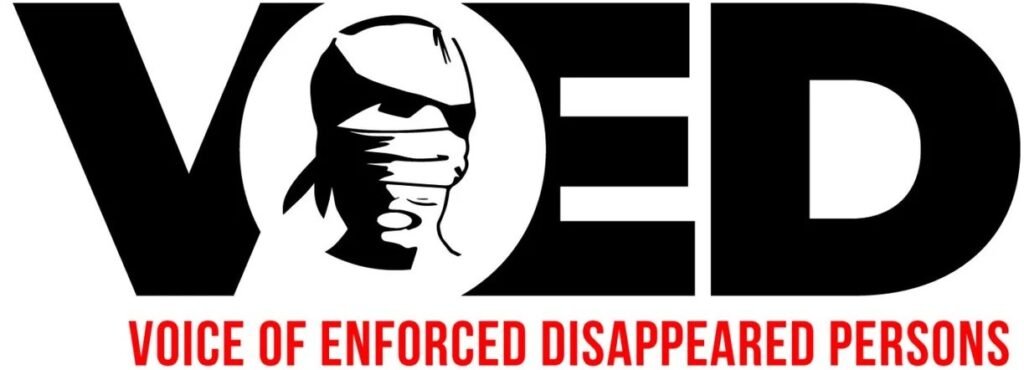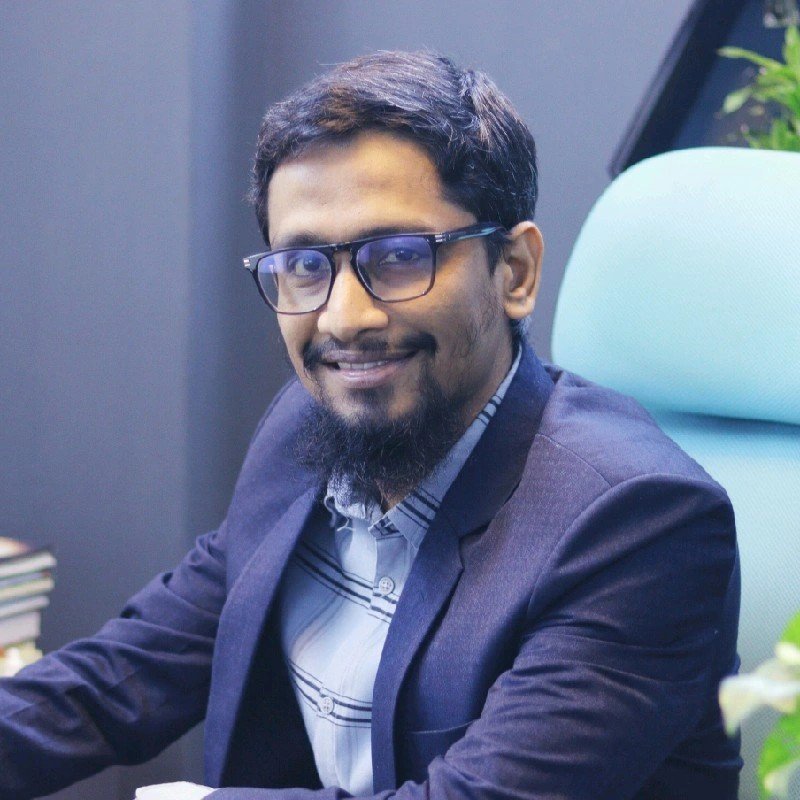I am Masrur Anwar Chowdhury.
Profession: Freelancer — Procurement and Supply Chain Specialist (Upwork, Fiverr).
Before my disappearance, I worked in two multinational hotel chains — Radisson Blu Chittagong and Holiday Inn Dhaka.
I completed my B.Sc in Electrical and Electronics Engineering (EEE) from Independent University of Bangladesh in 2012.
School: Chittagong Cantonment High School (2005)
College: Chittagong Public School and College (2007)
In February 2020, I was working as Purchase Manager at Holiday Inn Dhaka City Center, a newly opened multinational hotel chain in Tejgaon. It was my third month there.
Within just four years of my career, I had already reached the position of Procurement Manager in a multinational company with a six-digit salary.
Alongside my career growth, I developed a passion for writing.
At first, I used to write humorous pieces, but later my topics shifted to exposing the oppression and injustices of the Awami League, and speaking against Islamophobic forces.
No matter how busy I was, I never gave up my passion for writing boldly against injustice, without fear.
By 2020, the country was boiling with protests against Narendra Modi’s visit. Following that trend, in late February, I posted a short two-line Facebook status against the Indian Prime Minister’s visit.
The result? On February 29, 2020 — I began my journey to the dark world of secret detention…
—
The Abduction
Around 8–8:30 AM, I left my rented home in Gudara Ghat, Badda, and took a rickshaw to the office.
As I reached in front of Police Plaza at Hatirjheel, a white microbus stopped my rickshaw. Five or six men in plain clothes jumped out.

They showed me my Facebook post and asked, “Are you Masrur?” I replied, “Yes.”
Immediately, two men grabbed my arms and told me to get into the microbus.
Terrified, I said, “I have two little children… where are you taking me?”
One of them flashed a RAB (Rapid Action Battalion) ID card and said, “You understand who we are, right? Get in the car now, or we’ll shoot you.”
Frightened, I got in. They blindfolded me, handcuffed me behind my back, and I could see weapons inside the vehicle.
The vehicle started moving. They took my phone and began scrolling through my Facebook posts, making sarcastic remarks. I asked where they were taking me. They replied, “We’ll take you to your office for some questioning, then let you go.”
One of them said, “Masrur, if you answer all our questions honestly, we’ll release you.” They began asking about my family and career, and I answered everything right there in the vehicle.
—
Fear of Execution
After about an hour, the car stopped. I overheard them saying they were at “Three Hundred Feet” — a place known for many so-called “crossfires” (extrajudicial killings).
My heart pounded. I was sure they were going to execute me. I quietly recited the Shahada, prayed intensely, and began reciting Dua Yunus loudly. My children’s faces, my parents, and my wife’s tearful eyes flashed before me.
But they started driving again. One of them began playing sermons of certain Islamic scholars on his phone and asked mockingly, “You like jihadi sermons, right? You want to be a militant, don’t you?”
I got angry and said, “Why are you playing this for me? If you can, take off my blindfold! Why are you treating me inhumanely? What crime have I committed?”
One of them grabbed my neck and hissed, “Shut up! Not one word.”
—
First Cell
After another hour of driving, they took me into a small room, removed my blindfold and handcuffs. The room had a toilet and a bed in the same space.
It was winter. I took off my jacket, covered my face, and somehow fell asleep — I believe Allah put me to sleep.
An hour later, I woke to the sound of someone crying nearby. I asked him if he had also been picked up, but he didn’t reply.
Soon, a guard came, blindfolded me again, and took me to another room. They tied me to a chair — hands and feet bound.
—
The Beating and Interrogation
I realized they were preparing to torture me. Suddenly, they began beating me with sticks from both sides, shouting, “Who else is with you? Give us names! Who do you meet for tea in front of your office?”
Terrified, I gave the names of two brothers I used to chat with after work. They pulled up photos from Facebook, showed them to me, and took their phone numbers.
Then they blindfolded me again and took me back to the cell.
When I said I was hungry, they gave me a bread roll and told me to drink water from the toilet tap. I asked for a Qur’an, and a guard brought one. I prayed all day, reciting Qur’an while crying loudly. They warned me to read more quietly.
—
Accusations of Militancy
That night, they interrogated me again, focusing on my charity work in Rohingya camps, and tried to force me to confess I had militant links. I denied it.
The next morning, they blindfolded me and put me into a vehicle again. I was sure this time was my execution.
But after an hour, I saw through a gap in the blindfold the words “RAB Headquarters.” A guard noticed and tightened my blindfold.
They took me upstairs, gave me tasteless food, and even forced me to drink water from my washed hands. Then they made me change into a lungi and T-shirt and locked me in a pitch-dark cell.
—
Other Detainees
In the darkness, I heard a man from the opposite cell making a “shhh” sound. Through the faint light, I saw him gesturing to show me how to bring my cuffed hands to the front and lift my blindfold.
I saw four men in opposite cells and two beside me. They gave me mental support, told me to have patience and trust Allah.
Among them:
A man brought straight from the airport after arriving from Qatar.
A 17–18-year-old boy from Chittagong who was calm and even consoled me.
A man from Bhola.
One man had gone insane from constant beatings and was left naked; guards would brutally assault him.
When I asked how long they’d been there, some said two years, some three. Minimum detention — one to two years!
I lost hope of ever getting out alive.
—
Daily Life in the Cell
These cells were filthier and darker than any prison room you can imagine — no sunlight. The guards would announce prayer times.
We were given five minutes for toilet or washing, escorted by guards who never closed the toilet door completely.
—
Days of Interrogation and Beatings
They kept asking the same questions about politics and my contacts. Frustrated by my answers, they beat me more. They checked my Messenger contacts one by one, but found nothing.
After about 7–8 days, a guard brought my clothes and told me to change. I thought, “This is it — they’ll kill me now.”
Instead, they moved me to my first-day cell — and I discovered they had also picked up the two brothers whose names I had given earlier. I felt deep guilt and regret.
—
Media Staging
One day, they brought us out in handcuffs, in front of about a dozen media outlets including Somoy TV. We were made to walk between two RAB members, then taken back to the cell.
That night, we were transferred to Fatullah Police Station in Narayanganj. I managed to borrow a phone to call my parents — my father broke down in tears.
The next day, we were sent to Narayanganj Jail.
—
The False Case
The charge? That RAB-11 had caught us “red-handed” in front of a hotel in Signboard area of Narayanganj while “planning acts of sabotage.” They claimed we were members of a militant organization, anti-state elements, and had militant books with us.
A completely fabricated case.
—
Jail and Aftermath
I spent almost 10 months in jail — March to December — before release. When I came home, my baby boy, who was crawling when I left, was now running. My daughter had grown up.
Even now, four years later, I still have to appear in court in Narayanganj for this false case. I don’t know if I will ever be acquitted, or if I’ll end up in prison again.
After release, I was jobless for 1.5 years. No one hires a “militant.” I fell into debt. Life after prison was even harder than inside.
—
The Truth
Every word I’ve written here is true, and I make you my witnesses today.
Some corrupt officers of RAB-11 did this for promotions, money, and to impress foreign powers. They staged false militant dramas, received government medals, and destroyed countless lives.
They have abducted, tortured, and jailed hundreds of innocent people — even women.
Their trial must happen on the soil of Bangladesh. Only then will our independence be truly fulfilled.


